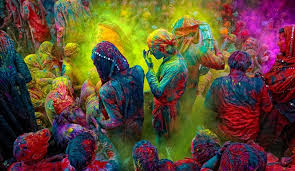Legend Of Veer Savarkar
The first political leader to daringly set Absolute Political Independence as India’s goal (1900).
The first Indian political leader to daringly perform a bonfire of foreign (English) clothes (1905).
The first Indian to organize a revolutionary movement for India’s Independence on an international level (1906).
The first Indian law student who was not called to the English Bar despite having passed his examination and observed the necessary formalities, for his activities to seek India’s freedom from the British (1909).
The only Indian leader whose arrest in London caused legal difficulties for British Courts and whose case is still referred to in the interpretations of the Fugitive Offenders Act and theHabeas Corpus (Rex Vs Governor of Brixton Prison, ex-parte Savarkar)
The first Indian historian whose book on the 1857 War of Independence was proscribed by British Authorities in India even before its publication. The Governor General had asked the Postmaster General to confiscate copies of the book six months before the book was officially banned (1909).
The first political prisoner whose daring escape and arrest on French soil became a cause celebre in the International Court of Justice at The Hague. This case was mentioned in many International Treaties at that time (1910).
The first graduate whose degree was withdrawn by an Indian University for striving for India’s freedom (1911).
The first poet in the world who, deprived of pen and paper, composed his poems and then wrote them on the prison walls with thorns and nails, memorized ten thousand lines of his poetry for years and later transmitted them to India through his fellow-prisoners who also memorized these lines.
The first revolutionary leader who within less than 10 years gave a death-blow to the practice of untouchability in the remote district of Ratnagiri while being interned there.
The first Indian leader who successfully started
A Ganeshotsava open to all Hindus including ex-untouchables (1930).
Interdining ceremonies of all Hindus including ex-untouchables (1931).
“Patitpavan Mandir”, open to all Hindus including ex-untouchables (22 February 1931).
A cafe open to all Hindus including ex-untouchables (01 May 1933).
The first political prisoner in the world who was sentenced to Transportation for Life twice, a sentence unparalled in the history of the British Empire.
The first political leader to embrace death voluntarily by way ofAtma Samarpan in the highest tradition of Yoga (1966).

.jpg)







